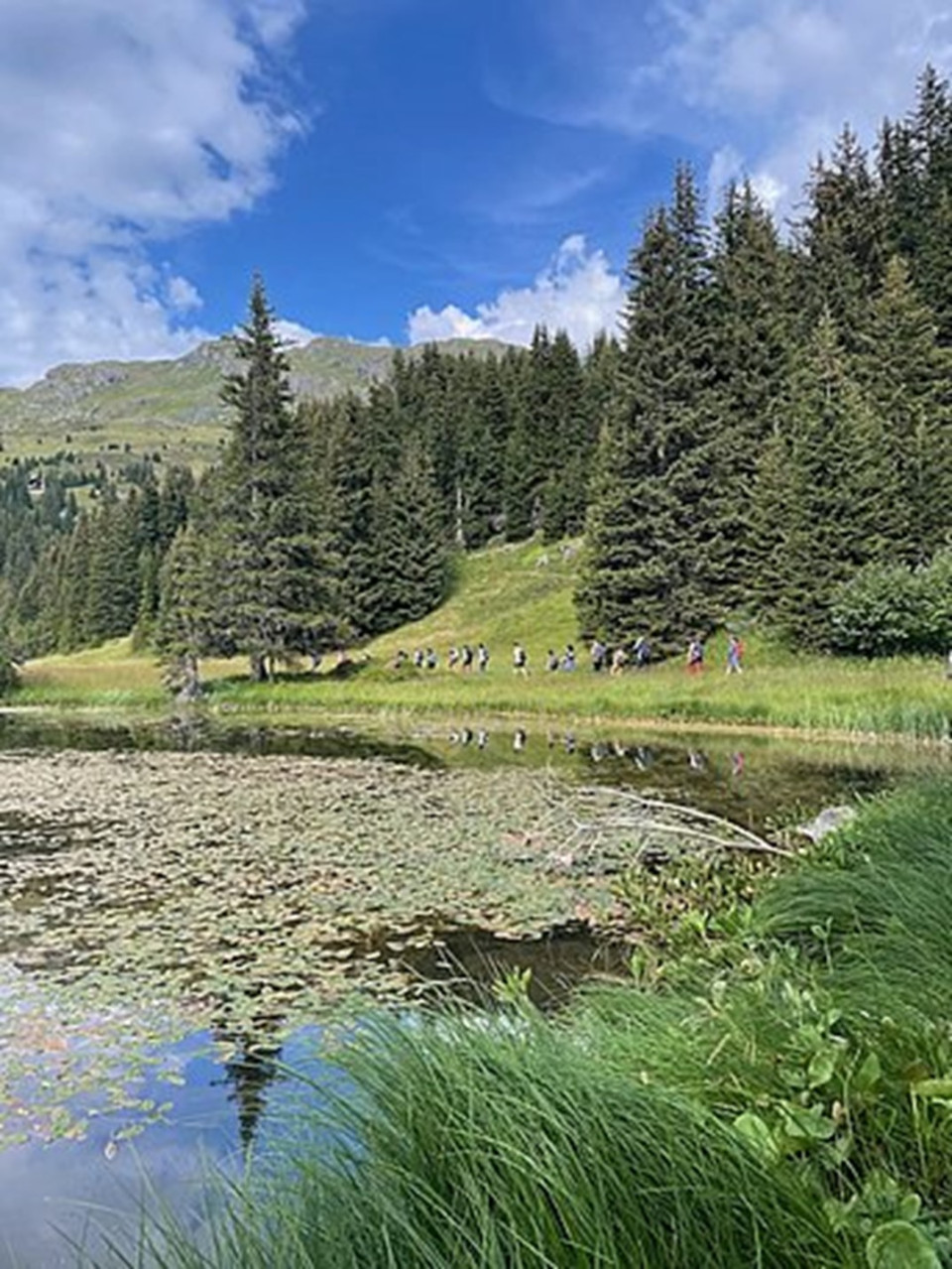Um unsere Website für Sie optimal zu gestalten und fortlaufend verbessern zu können, verwenden wir Cookies. Durch die weitere Nutzung der Website stimmen Sie der Verwendung von Cookies zu. Weitere Informationen zu Cookies erhalten Sie in unserer Datenschutzerklärung.
AusblendenSummer School: Blue-green biodiversity. Research and practice at the interface of aquatic and terrestrial ecosystems
WSL-Institut für Schnee- und Lawinenforschung SLF
Start:
24. August 2025, 13:00
Ende:
29. August 2025, 18:00
Ort:
Davos, Hotel Shima
Organisiert von:
WSL Biodiversity Center, WSL
Vortrag:
Various speakers
Moderation:
Nadia Castro & Catherine Graham, WSL
Sprache(n):
English
Veranstaltungstyp:
Courses
Zielpublikum:
PhD students
The WSL Biodiversity Center is pleased to announce the third edition of the summer school "Blue-Green Biodiversity. Research and Practice and the Interface of Aquatic and Terrestrial Ecosystems”, which will take place in August 2025 in Davos, Switzerland. The summer school is a collaboration between WSL and Eawag.
Freshwater and terrestrial ecosystems are closely interconnected, but they are often studied in isolation from each other. In the context of global change, it is urgent to understand how blue (water) and green (land) ecosystems are similar or different in terms of biodiversity patterns, ecological and evolutionary processes, and their responses to global drivers. Evidence-based understanding of blue-green biodiversity is necessary to inform policies and action to halt and reverse nature loss that threatens human well-being.
In response to this challenge, WSL and Eawag are collaborating to offer the "Summer School: Blue-Green Biodiversity – Research and Practice at the Interface of Aquatic and Terrestrial Ecosystems" for the third time. Organized by the WSL Biodiversity Center, the summer school aims to provide an in-depth understanding of the linkages between aquatic and terrestrial ecosystems, as well as the interdependencies between ecological and social systems. While focusing on Swiss habitats, the summer school will highlight how an integrated approach —incorporating the ecological, evolutionary, and social dimensions of blue and green ecosystems—benefits the conservation, maintenance, and restoration of biodiversity.
Program
The program consists of lectures, field excursions, and group work led by WSL and Eawag researchers and invited speakers. State-of-the-art knowledge and approaches will be presented and discussed considering the expectations of current and future blue and green ecosystems from scientific, nature conservation, management, and socio-economic perspectives. The participants will reflect on their own scientific work with respect to other disciplinary methods and discuss the possible benefits of interdisciplinary approaches in their field.
The preliminary program is available here.
You can also read a summary from the 2024 edition and two participants' testimonials here.
ECTS
After successfully participating in the summer school, Ph.D. students enrolled at ETH can obtain 2 ECTS points (see ETH catalog here). Students enrolled at other institutions will receive a confirmation of successful participation. However, the crediting of ECTS is subject to the home university (ECTS: European Credit Transfer System; 1 ECTS credit equals approximately 25-30 hours of work).
Target audience
The Summer School is open to PhD students and postdoctoral researchers working on biodiversity and related disciplines. We also welcome applications from Master students (in their last year) if their background and motivation letter show a strong commitment to blue and/or green biodiversity research.

